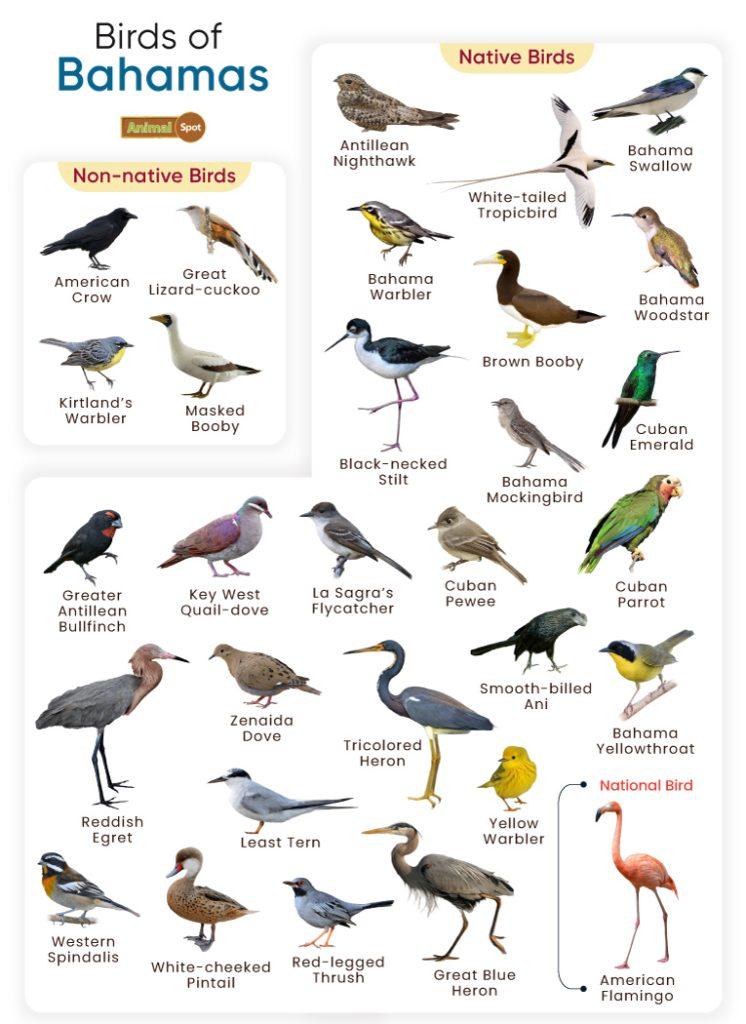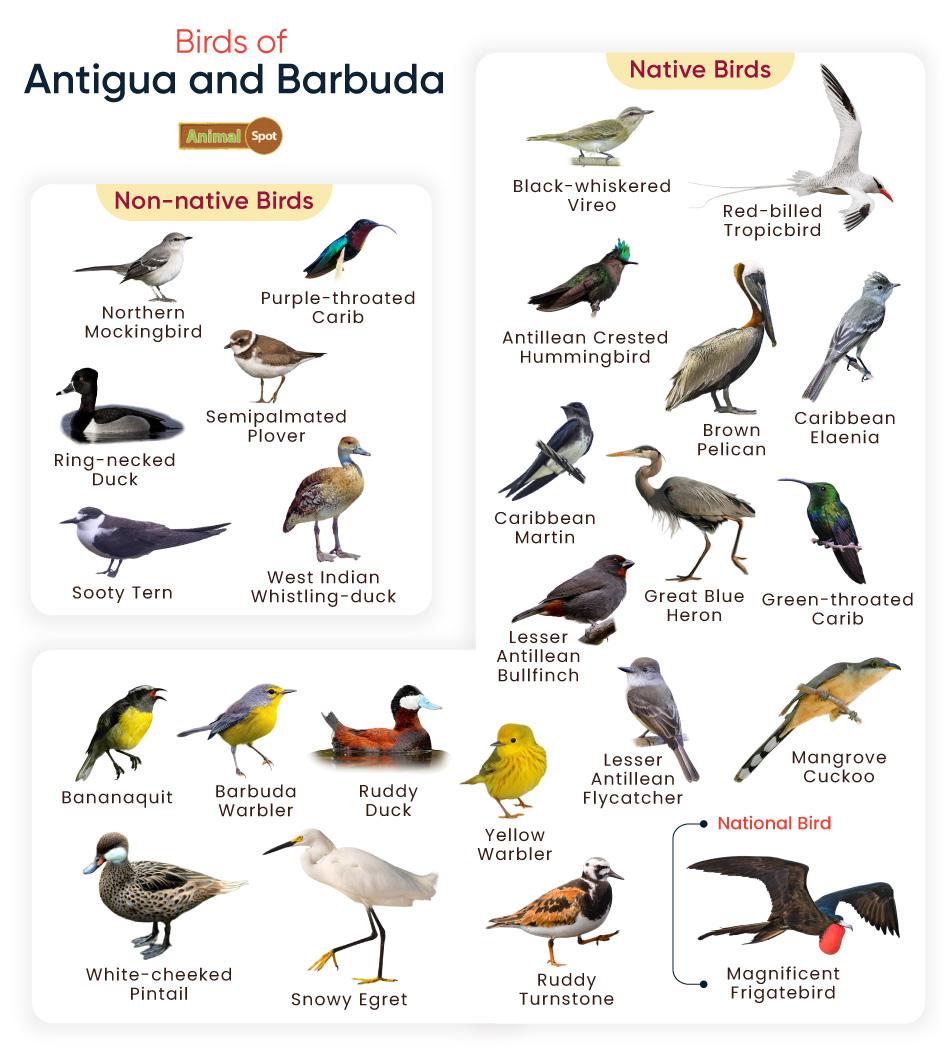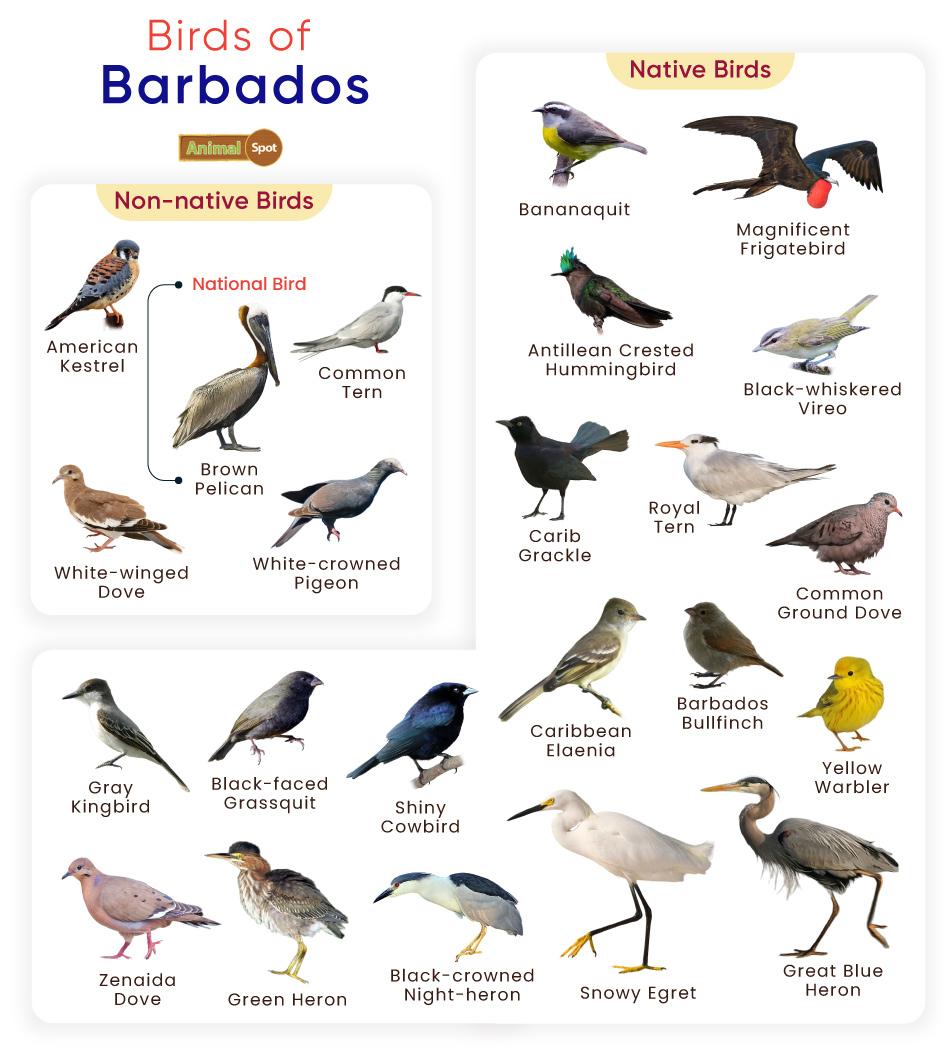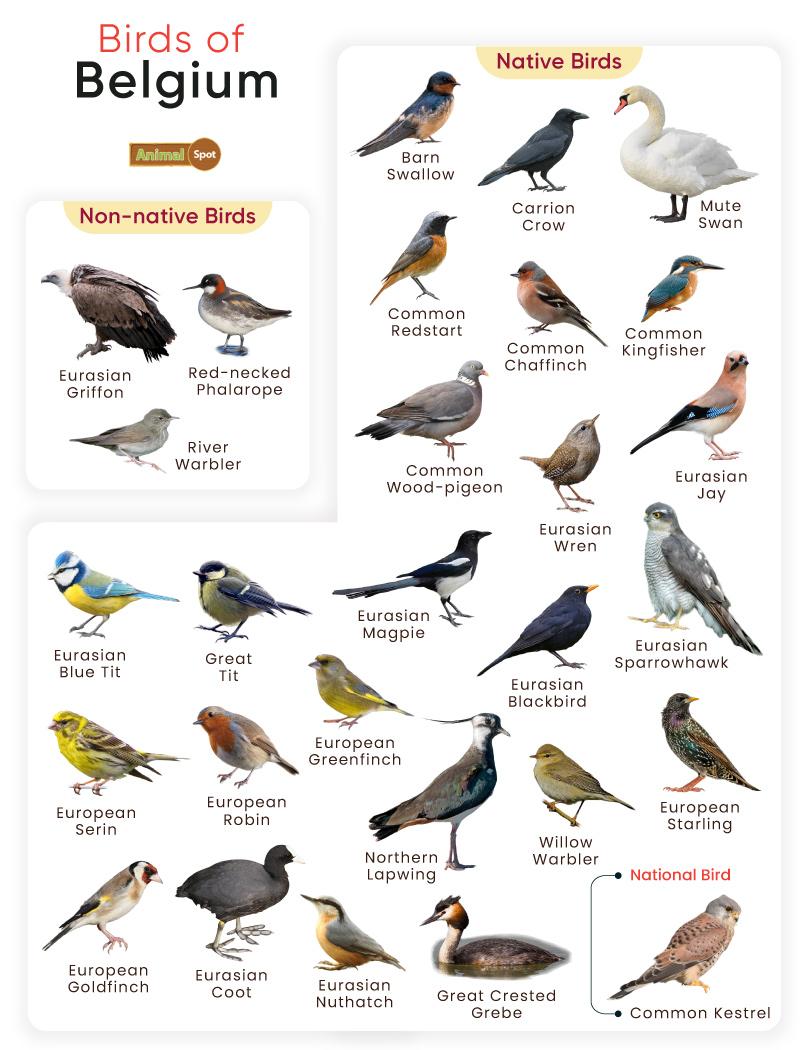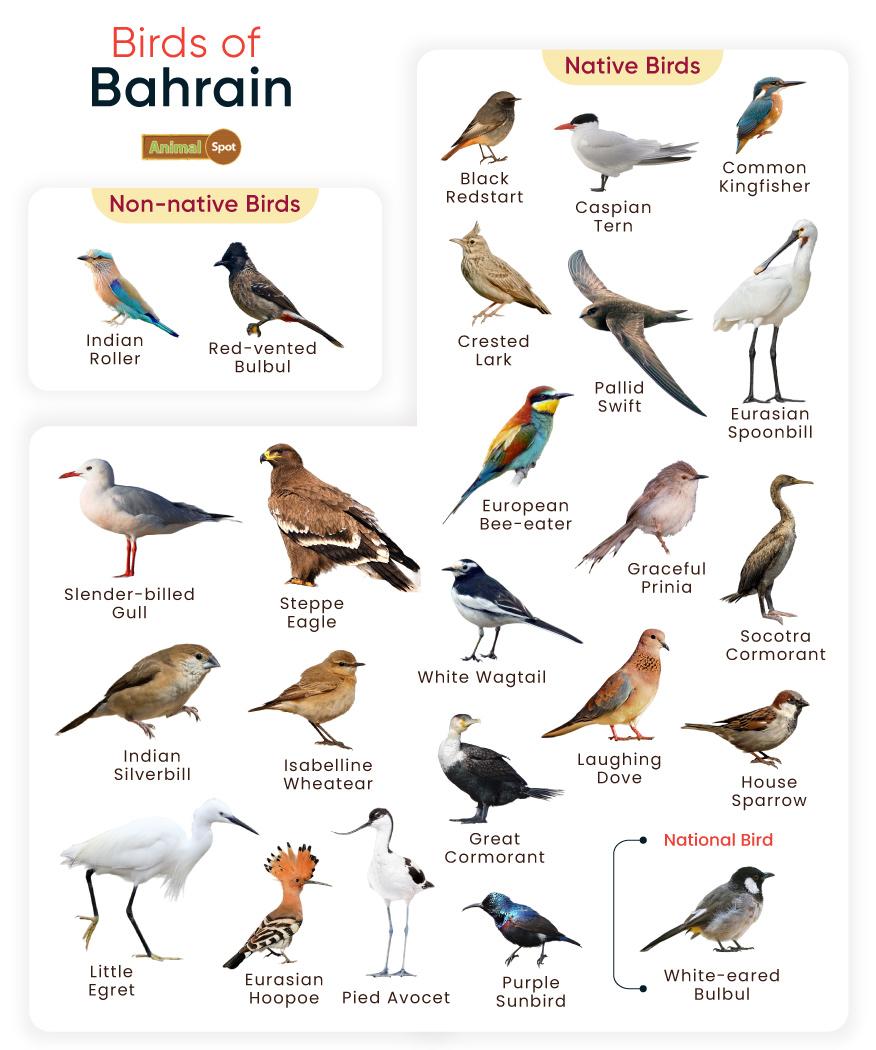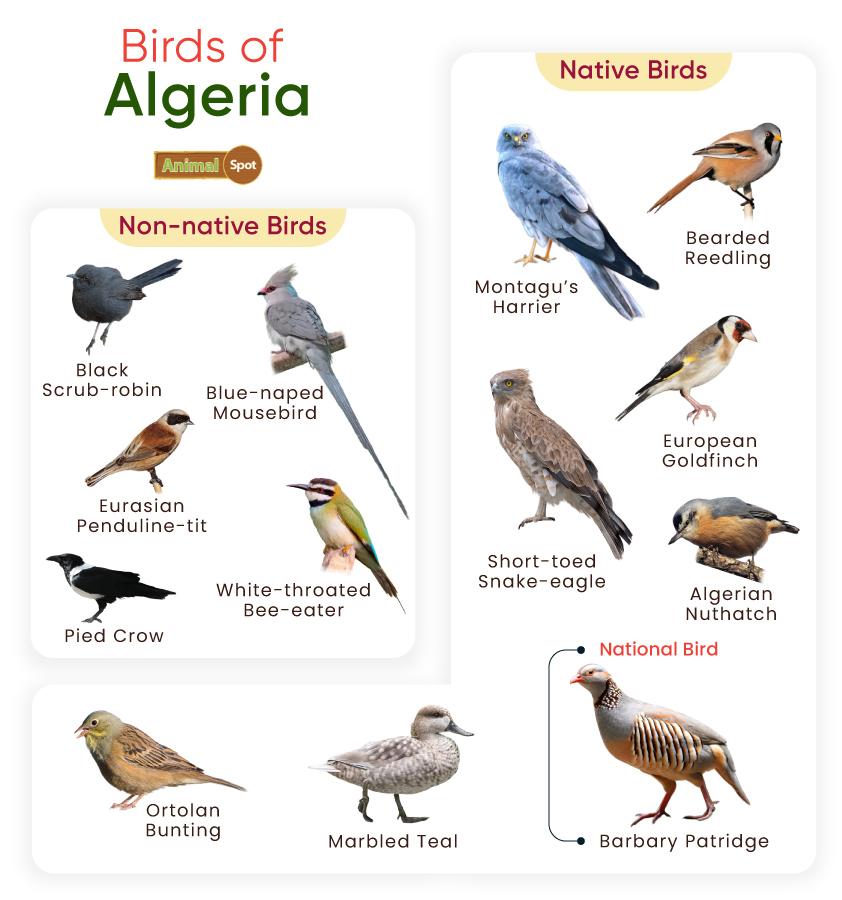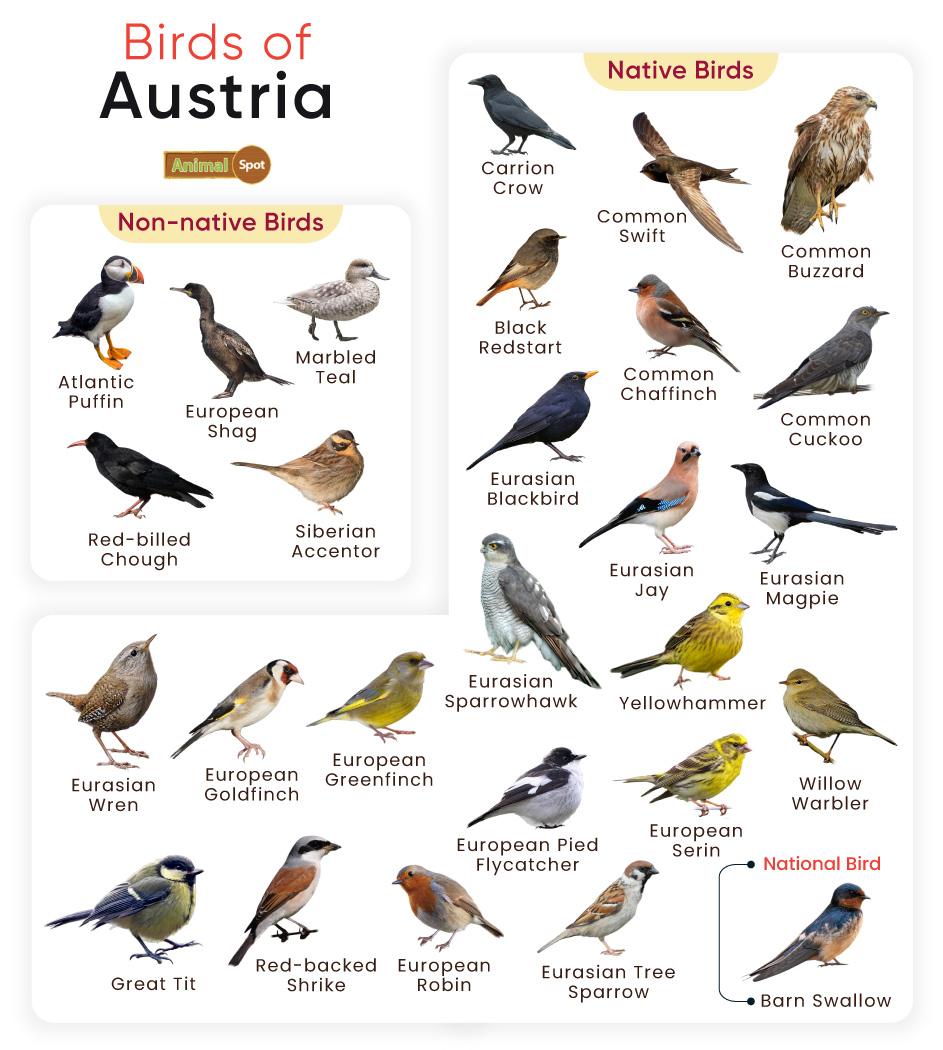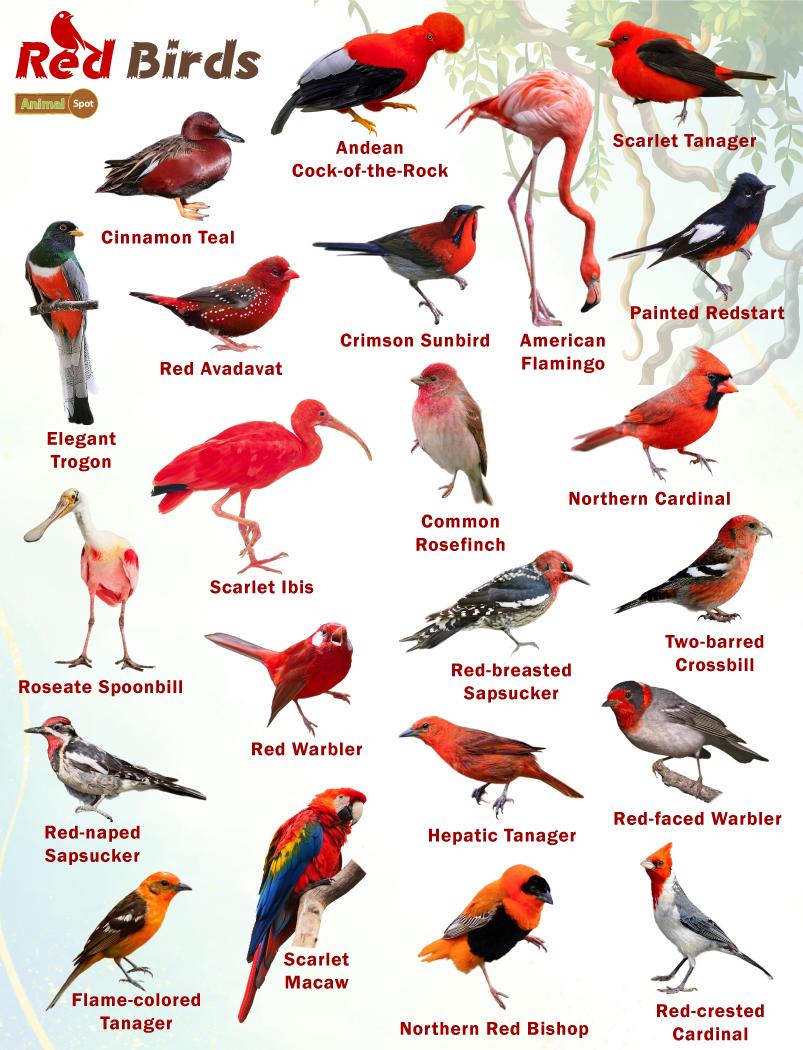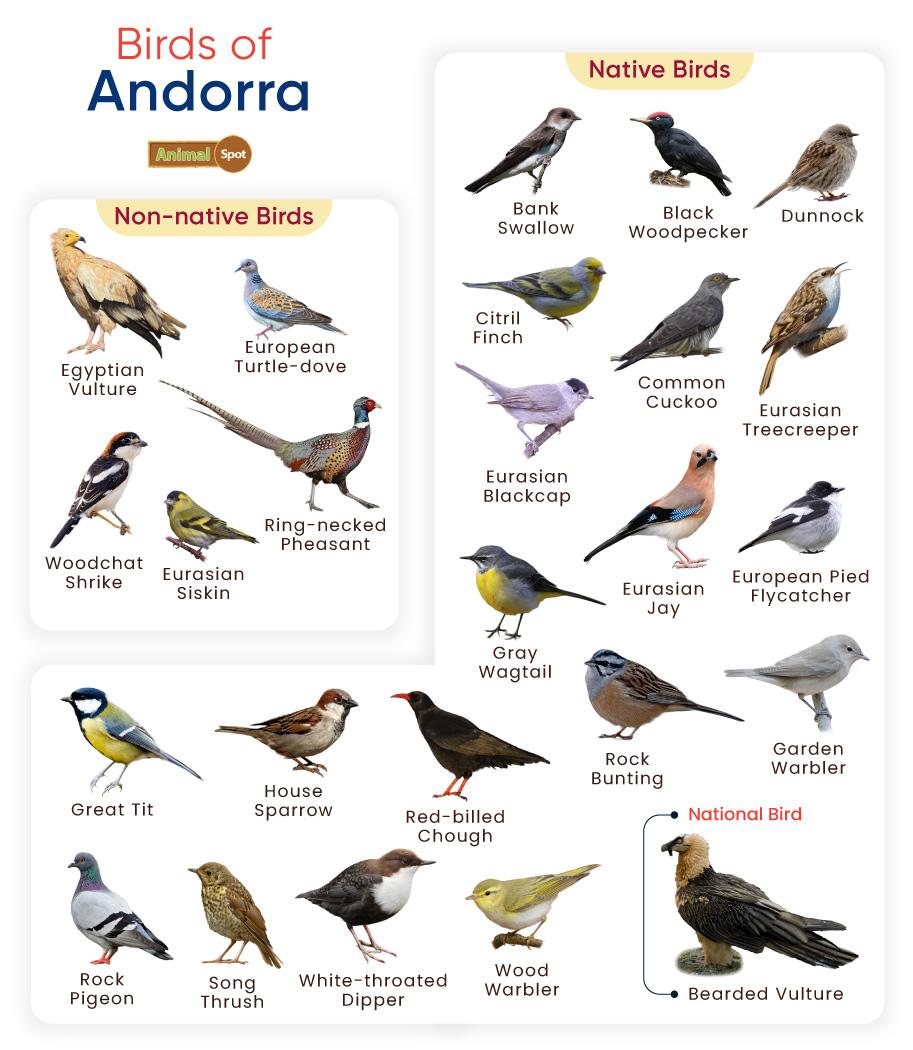The islands that form the archipelago of the Bahamas are home to a diverse range of birds. These include gulls, herons, and warblers.
The American Flamingo, or as it is referred to in the Bahamas – the West Indian Flamingo, is the country’s national bird. This is because one of the largest populations of the American Flamingo is found here.
List of Birds Found in the Bahamas
Native Birds
Barn-owls
Boobies and Gannets
Cardinal and Allies
- Indigo Bunting
- Painted Bunting
- Western Tanager
Cormorants and Shags
- Double-crested Cormorant
- Neotropic Cormorant
Cuckoos
- Mangrove Cuckoo
- Smooth-billed Ani
- Yellow-billed Cuckoo
Ducks, Geese, and Waterfowl
Falcons and Caracaras
Flamingos
Frigatebirds
Gnatcatchers
Grebes
- Least Grebe
- Pied-billed Grebe
Gulls, Terns, and Skimmers
- Bridled Tern
- Brown Noddy
- Gull-billed Tern
- Laughing Gull
- Least Tern
- Ring-billed Gull
- Roseate Tern
- Royal Tern
- Sandwich Tern
- Sooty Tern
Hawks, Eagles, and Kites
Herons, Egrets, and Bitterns
Hummingbirds
- Bahama Woodstar
- Cuban Emerald
- Green-breasted Mango
- Inagua Woodstar
Ibises and Spoonbills
Kingfishers
Limpkin
Mockingbirds and Thrashers
New World and African Parrots
New World Sparrows
- Savannah Sparrow
- Song Sparrow
- Vesper Sparrow
New World Vultures
New World Warblers
- American Redstart
- Bahama Warbler
- Bahama Yellowthroat
- Black-and-white Warbler
- Blackpoll Warbler
- Black-throated Blue Warbler
- Cape May Warbler
- Common Yellowthroat
- Kirtland’s Warbler
- Magnolia Warbler
- Northern Parula
- Northern Waterthrush
- Olive-capped Warbler
- Ovenbird
- Palm Warbler
- Pine Warbler
- Prairie Warbler
- Worm-eating Warbler
- Yellow-rumped Warbler
- Yellow-throated Warbler
- Yellow Warbler
Nightjars and Allies
Nuthatches
Osprey
Owls
Oystercatchers
Pelicans
Pigeons and Doves
- Bridled Quail-dove
- Common Ground Dove
- Key West Quail-dove
- Mourning Dove
- Rock Pigeon
- White-crowned Pigeon
- White-winged Dove
- Zenaida Dove
Plovers and Lapwings
- Black-bellied Plover
- Killdeer
- Piping Plover
- Semipalmated Plover
- Snowy Plover
- Wilson’s Plover
Rails, Gallinules, and Coots
- American Coot
- Black Rail
- Clapper Rail
- Common Gallinule
- Purple Gallinule
- Sora
Sandpipers and Allies
- Greater Yellowlegs
- Lesser Yellowlegs
- Marbled Godwit
- Sanderling
- Semipalmated Sandpiper
- Short-billed Dowitcher
- Spotted Sandpiper
- Western Sandpiper
- Willet
- Wilson’s Snipe
Shearwaters and Petrels
- Audubon’s Shearwater
- Barolo Shearwater
Shrikes
Southern Strom-petrels
Spindalises
Stilts and Avocets
Swallows
- Bahama Swallow
- Barn Swallow
- Cave Swallow
Tanagers and Allies
- Bananaquit
- Black-faced Grassquit
- Greater Antillean Bullfinch
Thrushes and Allies
Tropicbirds
- Red-billed Tropicbird
- White-tailed Tropicbird
Troupials and Allies
Tyrant Flycatchers
- Cuban Pewee
- Gray Kingbird
- La Sagra’s Flycatcher
- Loggerhead Kingbird
- Stolid Flycatcher
Vireos, Shrike-babblers, and Erpornis
- Black-whiskered Vireo
- Red-eyed Vireo
- Thick-billed Vireo
Woodpeckers
- Hairy Woodpecker
- West Indian Woodpecker
- Yellow-bellied Sapsucker
Non-native Birds
Albatrosses
Anhingas
Auks, Murres, and Puffins
Boobies and Gannets
- Masked Booby
- Northern Gannet
- Red-footed Booby
Cardinals and Allies
Cockatoos
Cranes
Crows, Jays, and Magpies
- American Crow
- Cuban Crow
- Fish Crow
Cuckoos
- Black-billed Cuckoo
- Great Lizard-cuckoo
Ducks, Geese, and Waterfowl
Finches, Euphonias, and Allies
Grebes
- Eared Grebe
- Red-necked Grebe
Gulls, Terns, and Skimmers
- Arctic Tern
- Black-headed Gull
- Black-legged Kittiwake
- Black Skimmer
- Black Tern
- Bonaparte’s Gull
- Caspian Tern
- Common Tern
- Forster’s Tern
- Franklin’s Gull
- Great Black-backed Gull
- Herring Gull
- Lesser Black-backed Gull
- Whiskered Tern
- White Tern
- White-winged Tern
Hawks, Eagles, and Kites
Herons, Egrets, and Bitterns
Hummingbirds
Ibises and Spoonbills
Kinglets
Larks
Longspurs and Snow Buntings
- Lapland Longspur
- Snow Bunting
Mockingbirds and Thrashers
New World and African Parrots
- Blue-and-yellow Macaw
- Monk Parakeet
- White-winged Parakeet
- Yellow-chevroned Parakeet
New World Quails
New World Sparrows
- Chipping Sparrow
- Clay-colored Sparrow
- Dark-eyed Junco
- Grasshopper Sparrow
- Lark Sparrow
- Lincoln’s Sparrow
- Swamp Sparrow
- White-crowned Sparrow
- White-throated Sparrow
New World Vultures
New World Warblers
- Bay-breasted Warbler
- Blackburnian Warbler
- Black-throated Green Warbler
- Blue-winged Warbler
- Canada Warbler
- Cerulean Warbler
- Chestnut-sided Warbler
- Connecticut Warbler
- Golden-winged Warbler
- Hooded Warbler
- Kentucky Warbler
- Kirtland’s Warbler
- Louisiana Waterthrush
- Mourning Warbler
- Nashville Warbler
- Orange-crowned Warbler
- Prothonotary Warbler
- Swainson’s Warbler
- Tennessee Warbler
- Townsend’s Warbler
- Virginia’s Warbler
- Wilson’s Warbler
Nightjars and Allies
- Chuck-will’s-widow
- Common Nighthawk
Northern Storm-petrels
- Band-rumped Storm-petrel
- Leach’s Storm-petrel
Old World Flycatchers
Old World Parrots
Old World Sparrows
Owls
Pelicans
Pheasants, Grouse, and Allies
Pigeons and Doves
- African Collared-dove
- Caribbean Dove
- Eurasian Collared-dove
- Pied Imperial-pigeon
- Scaly-naped Pigeon
Plovers and Lapwings
- American Golden-plover
- Northern Lapwing
- Pacific Golden-plover
Rails, Gallinules, and Coots
Sandpipers and Allies
- Buff-breasted Sandpiper
- Dunlin
- Eurasian Curlew
- Hudsonian Godwit
- Least Sandpiper
- Long-billed Dowitcher
- Pectoral Sandpiper
- Red Knot
- Red-necked Phalarope
- Red Phalarope
- Ruddy Turnstone
- Ruff
- Solitary Sandpiper
- Stilt Sandpiper
- Upland Sandpiper
- Whimbrel
- White-rumped Sandpiper
- Wilson’s Phalarope
Shearwaters and Petrels
- Bermuda Petrel
- Black-capped Petrel
- Cory’s Shearwater
- Great Shearwater
- Manx Shearwater
- Northern Fulmar
- Sooty Shearwater
- Trindade Petrel
Skuas and Jaegers
- Long-tailed Jaeger
- Parasitic Jaeger
- Pomarine Jaeger
- South Polar Skua
Starlings
Stilts and Avocets
Storks
Swallows
- Bank Swallow
- Caribbean Martin
- Cliff Swallow
- Cuban Martin
- Northern Rough-winged Swallow
- Purple Martin
- Tree Swallow
Swifts
- Antillean Palm-swift
- Chimney Swift
Tanagers and Allies
- Cuban Grassquit
- Yellow-faced Grassquit
Thick-knees
- Double-striped Thick-knee
Thrushes and Allies
- American Robin
- Eastern Bluebird
- Gray-cheeked Thrush
- Hermit Thrush
- Swainson’s Thrush
- Veery
- Wood Thrush
Troupials and Allies
- Baltimore Oriole
- Boat-tailed Grackle
- Brown-headed Cowbird
- Bullock’s Oriole
- Common Grackle
- Shiny Cowbird
- Yellow-headed Blackbird
Tyrant Flycatchers
Vireos, Shrike-babblers, and Erpornis
- Bell’s Vireo
- Blue-headed Vireo
- Philadelphia Vireo
- Warbling Vireo
- White-eyed Vireo
- Yellow-throated Vireo
Wagtails and Pipits
- American Pipit
- Sprague’s Pipit
Waxbills and Allies
- Scaly-breasted Munia
- Tricolored Munia
Waxwings
Woodpeckers
- Fernandina’s Flicker
- Northern Flicker
Wrens
Yellow-breasted Chat
Bird enthusiasts tend to visit the Bahamas between mid-March and early April, as it is an excellent time to see some wintering birds that have yet to leave, like the Kirtland’s Warbler. Popular places include Grand Bahama Island, Eleuthera Island, and Great Inagua Island. The last one is notable for its bird sanctuary that has over 80,000 American Flamingos.

